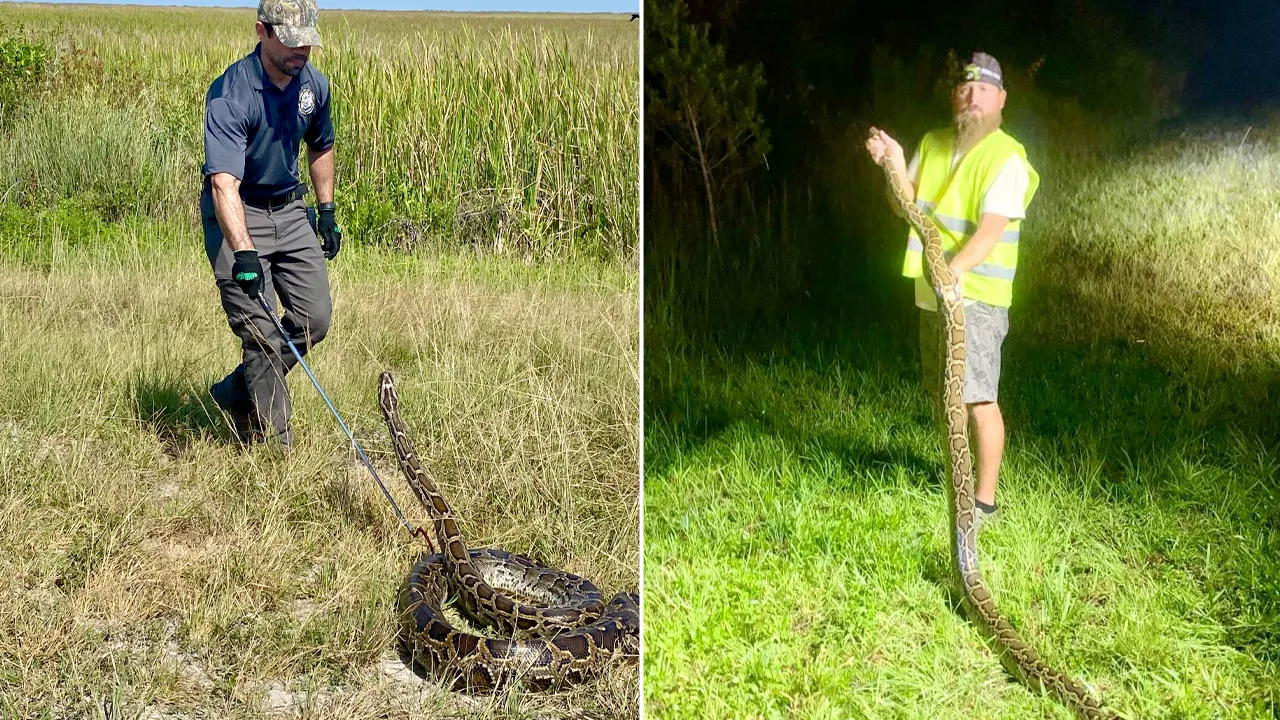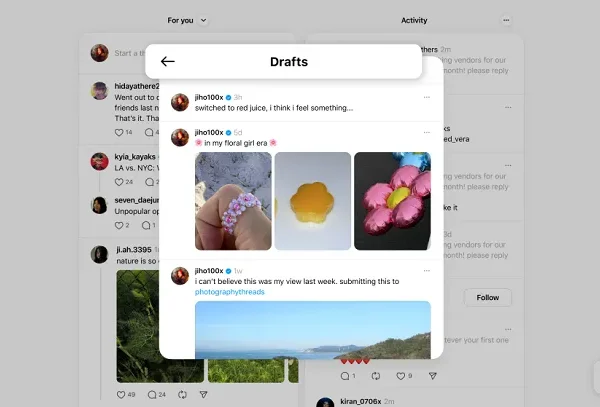Nearly 200 Burmese pythons were removed from the Everglades in South Florida in August as part of an annual competition to eradicate the invasive species from the ecosystem.
This year’s Florida Python Challenge attracted 857 participants from 33 states and Canada, and together the competitors removed 195 Burmese pythons.
The $10,000 grand prize went to Ronald Kiger, who removed 20 pythons from the Everglades during the 10-day hunt aimed at bringing awareness to the threat these snakes pose to the ecosystem.
Kiger competed in the challenge last year and was the runner-up to the grand prize winner.
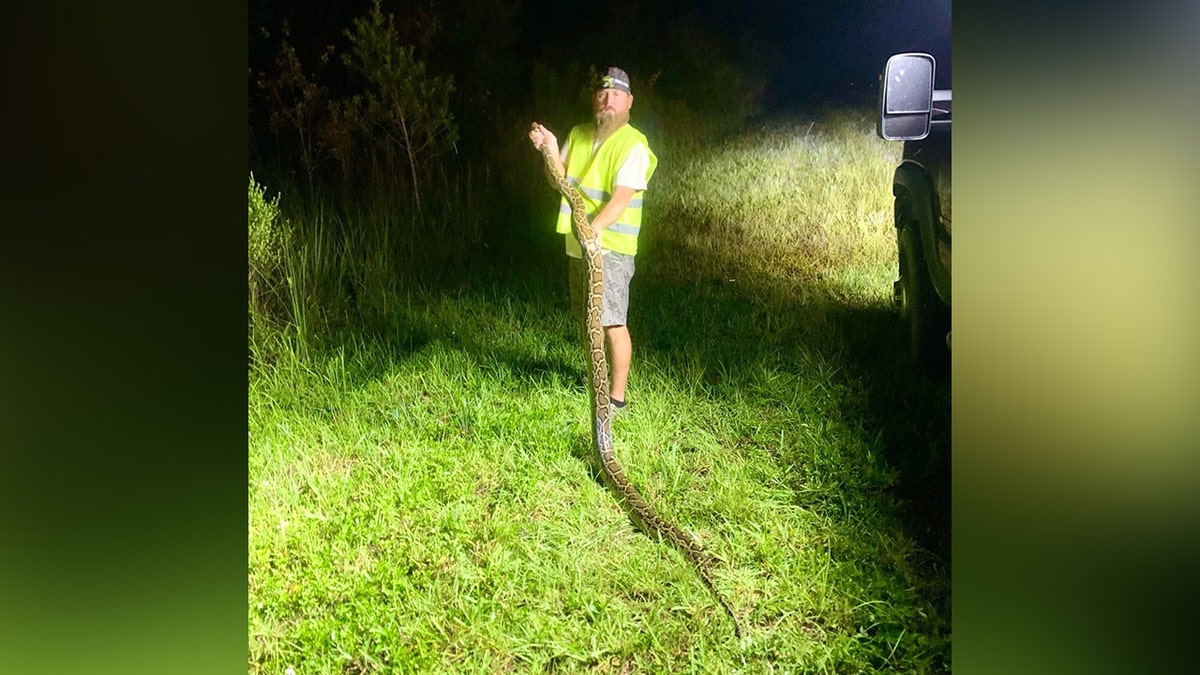
Ronald Kiger was the grand prize winner of the Florida Python Challenge after catching 20 Burmese pythons in August. (Florida Fish and Wildlife)
Representatives from the Florida Fish and Wildlife Conservation Commission announced Kiger as the grand prize winner Tuesday morning in Duck Key.
“The success of the 2024 Florida Python Challenge was a collective achievement, made possible by the contributions of more than 800 participants, the dedicated efforts of our staff, the invaluable support from our partners and the dedicated leadership of Governor Ron DeSantis,” FWC chairman Rodney Barreto said. “Over 14,000 pythons have been successfully removed by FWC and South Florida Water Management District contractors since 2017. This collective effort continues to have a direct positive impact on the Everglades and our native wildlife through removal and awareness.”
While Kiger won the grand prize, additional money was divided between competitors in three categories: novice, professional and military.
SOUTH FLORIDA RESEARCHERS USE GPS-FITTED POSSUMS AND RACCOONS TO CAPTURE INVASIVE PYTHONS: REPORTS
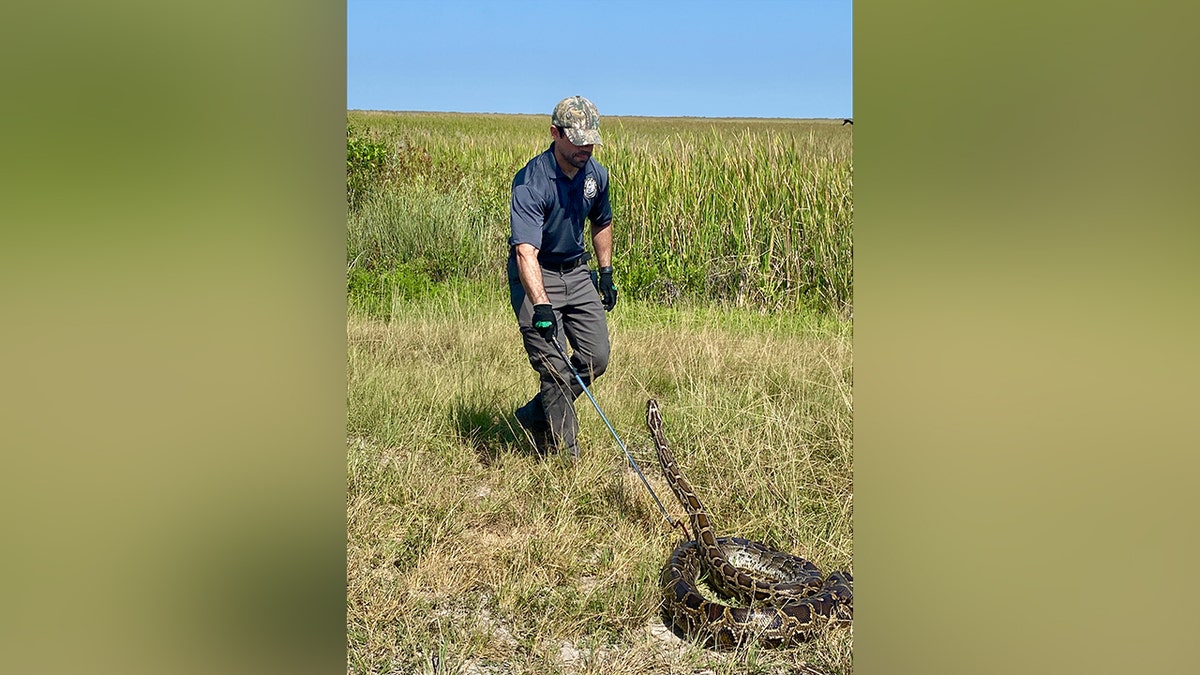

The Florida Python Challenge took place in August and removed nearly 200 invasive Burmese pythons from the Florida Everglades. (Florida Fish and Wildlife)
Donna Kalil was a python away from a tie with Kiger and won $2,500 for catching 19 pythons in the professional category, as she works as a contractor with the South Florida Water Management District.
Marcos Rodriguez, who was also entered in the professional category, captured 16 pythons for $1,500, and Quentin Archie won $1,000 for catching the longest python at 8 feet, 11 inches. Dennis Krum, who caught the longest python in the novice category and in the entire competition at 9 feet, 11 inches, also won $1,000.
In the novice category, Thomas Hobbs won $2,500 for catching 16 Burmese pythons, and in the military category, Jeff Lince won $2,500 for catching five pythons. Additionally, Antonio Ramos won $1,000 for catching the longest python in the military group at 9 feet, 7 inches.
FLORIDA MAN CAPTURES 28 BURMESE PYTHONS TO WIN TOP PRIZE IN STATE’S ANNUAL CHALLENGE
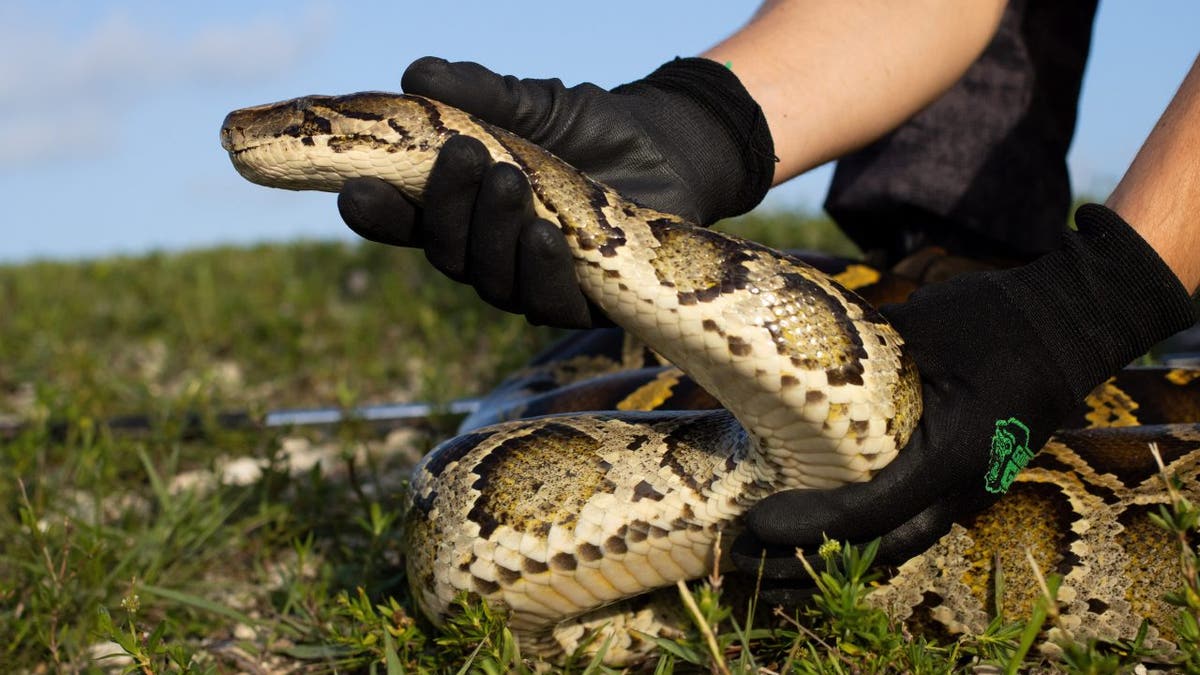

A Burmese python, a nonnative species in the area, is captured in south Florida. (Florida Fish and Wildlife Photo / Andy Wraithmell)
During the mid-August challenge, hunters were tasked with humanely killing the Burmese pythons and turning in the carcasses to any of the contest’s three check stations in South Florida.
The challenge offered great incentives to hunters, but also served as an opportunity to raise awareness about the dangers of Burmese pythons and how they can spread diseases among native animals and have high mercury levels that are dangerous for human consumption.
According to the FWC, Burmese pythons are not native to the Sunshine State and their presence in the Everglades ecosystem and south Florida negatively impacts the native species, as a female Burmese can lay 50 to 100 eggs at a time.
CLICK HERE TO GET THE FOX NEWS APP
In addition to the Florida Python Challenge, the FWC said residents can continue to control non-native species by removing and humanely killing pythons. This can be done at any time on private land with permission from the landowner and on 25 commission-managed lands in south Florida.
Non-native fish and wildlife can also be reported to the FWC’s Invasive Species Hotline at 1-888-483-4681, online at IveGot1.org, or by downloading the IveGot1 smartphone app.
The Associated Press contributed to this report.

